Meet us at MOSA Industry & Government Summit
Gaylord National Hotel & Conference Center | August 27-29, 2025
National Harbor, MD | Booth #605
Meet us at MOSA Industry & Government Summit
Gaylord National Hotel & Conference Center | August 27-29, 2025 | National Harbor, MD | Booth #605
Lynx on the Panel
Digital Engineering and MOSA-Based Platform Technologies for Safety-Critical AI and Sensor Fusion Architectures
Speaker: Will Keegan, Chief Technology Officer
Session Description
This session explores how MOSA platform technologies such as CPU virtualization, Vulkan, and Time-Sensitive Networking (TSN), combined with Digital Engineering best practices including Model-Based System Engineering (MBSE), are essential for managing the complexity and scale of highly integrated sensor fusion and AI-driven computing platforms. These techniques enable the safe, secure, and deterministic deployment of real-time applications across multiple domains, while supporting system certifiability and long-term mission assurance.
Meet the Panel
Will Keegan: Speaker
Chief Technology Officer, Lynx
Will Keegan leads the technology direction across all the Lynx product lines. He has been instrumental in developing key security technologies within Lynx to broaden the reach of existing products, focusing on cybersecurity, cryptography, and virtualization. Will joined Lynx in 2011 as the director of security solutions, with responsibility for the LynxSecure product line. Before Lynx he was a product developer at Object Interface Systems, Inc., responsible for product engineering of real-time middleware and high-assurance cryptographic network technologies. He holds a BS in Computer Science from the University of Texas.
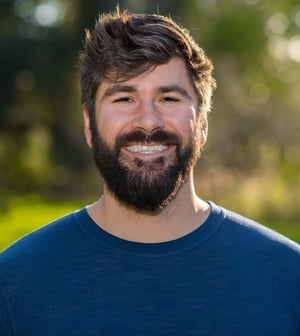
Will Keegan: Speaker
Chief Technology Officer, Lynx
Will Keegan leads the technology direction across all the Lynx product lines. He has been instrumental in developing key security technologies within Lynx to broaden the reach of existing products, focusing on cybersecurity, cryptography, and virtualization. Will joined Lynx in 2011 as the director of security solutions, with responsibility for the LynxSecure product line. Before Lynx he was a product developer at Object Interface Systems, Inc., responsible for product engineering of real-time middleware and high-assurance cryptographic network technologies. He holds a BS in Computer Science from the University of Texas.
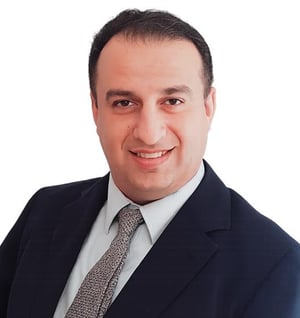
Ethan Salehi: Moderator
Technical Account Manager, Lynx
Ethan Salehi is an Technical Account Manager at Lynx and a Ph.D. researcher at Kennesaw State University, where his research focuses on safe and secure real-time operating systems for multicore embedded systems. He has extensive experience supporting defense and aerospace programs with certifiable software solutions aligned with MOSA, FACE, and DO-178C standards. Ethan previously served as a FACE Verification Authority at LDRA and contributed to multicore interference analysis initiatives in collaboration with the U.S. Army. His work bridges theoretical architectures and practical deployment of OS-level standardization, supporting mission-critical environments such as degraded visual operations and autonomous systems.
Ethan Salehi: Moderator
Technical Account Manager, Lynx
Ethan Salehi is an Technical Account Manager at Lynx and a Ph.D. researcher at Kennesaw State University, where his research focuses on safe and secure real-time operating systems for multicore embedded systems. He has extensive experience supporting defense and aerospace programs with certifiable software solutions aligned with MOSA, FACE, and DO-178C standards. Ethan previously served as a FACE Verification Authority at LDRA and contributed to multicore interference analysis initiatives in collaboration with the U.S. Army. His work bridges theoretical architectures and practical deployment of OS-level standardization, supporting mission-critical environments such as degraded visual operations and autonomous systems.
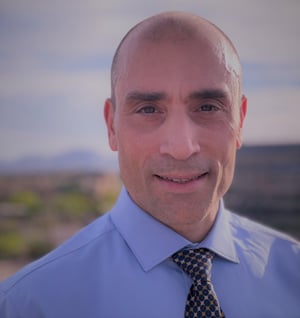
Peter Papadatos: Panelist
Director of Software Product Development, Lynx
As Director of Software Product Development at Lynx, Peter brings over 20 years of experience in GPU software and safety-critical systems. He began his career developing real-time video acceleration tools for the entertainment industry, including contributions to Apple’s Final Cut Pro, before transitioning to aerospace. At Honeywell Aerospace, he spent nearly two decades architecting advanced display systems with deep expertise in FPGA design, graphics drivers, RTOS integration, and mixed-integrity architectures, along with extensive knowledge of partitioning, WCET analysis, multicore interference, and DO-178 certification. At Lynx, Peter leads product and architecture development for safety-critical graphics and compute solutions. He is well-versed in OpenGL and Vulkan, and previously chaired the Khronos Vulkan SC Working Group. His work continues to drive innovation at the intersection of performance, modularity, and certifiability in modern aerospace and defense platforms.
Peter Papadatos: Panelist
Director of Software Product Development, Lynx
As Director of Software Product Development at Lynx, Peter brings over 20 years of experience in GPU software and safety-critical systems. He began his career developing real-time video acceleration tools for the entertainment industry, including contributions to Apple’s Final Cut Pro, before transitioning to aerospace. At Honeywell Aerospace, he spent nearly two decades architecting advanced display systems with deep expertise in FPGA design, graphics drivers, RTOS integration, and mixed-integrity architectures, along with extensive knowledge of partitioning, WCET analysis, multicore interference, and DO-178 certification. At Lynx, Peter leads product and architecture development for safety-critical graphics and compute solutions. He is well-versed in OpenGL and Vulkan, and previously chaired the Khronos Vulkan SC Working Group. His work continues to drive innovation at the intersection of performance, modularity, and certifiability in modern aerospace and defense platforms.
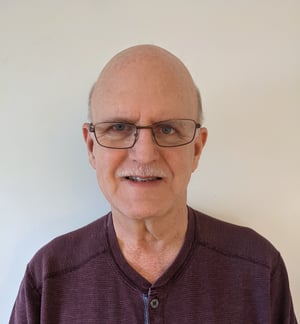
Mark Snyder
Senior Scientist, L3Harris
Mark Snyder is a Senior Scientist with L3Harris, where he leads software development for Modular Open Systems Architecture (MOSA) activities, specializing in Open Standards approaches to graphics, simulation, and software development technologies. His 37-year career in aerospace includes 9-years active duty in the US Air Force concentrating on Space, C4ISR systems and simulation. He also spent many years developing commercial and military display avionics at companies including Honeywell, GE Aerospace, L3Harris, Alt Software, and Quantum3D, specializing in software architecture, open systems, graphics, HMI, and simulation. His work has impacted many military and commercial flight decks throughout the years in areas such as digital maps, synthetic vision, crew situational awareness, and crew interface. He holds an MS in Computer Science from AFIT and a BS in Computer Science from Arizona State.
Mark Snyder
Senior Scientist, L3Harris
Mark Snyder is a Senior Scientist with L3Harris, where he leads software development for Modular Open Systems Architecture (MOSA) activities, specializing in Open Standards approaches to graphics, simulation, and software development technologies. His 37-year career in aerospace includes 9-years active duty in the US Air Force concentrating on Space, C4ISR systems and simulation. He also spent many years developing commercial and military display avionics at companies including Honeywell, GE Aerospace, L3Harris, Alt Software, and Quantum3D, specializing in software architecture, open systems, graphics, HMI, and simulation. His work has impacted many military and commercial flight decks throughout the years in areas such as digital maps, synthetic vision, crew situational awareness, and crew interface. He holds an MS in Computer Science from AFIT and a BS in Computer Science from Arizona State.
Tony Karam
Emerging Technology Director, Systems & Analysis Group, Synopsys
Tony Karam is the Emerging Technology Director within the Synopsys Systems & Analysis Group, where he leads strategic initiatives around next-generation technologies and solutions. He holds a Bachelor of Science in Electrical Engineering and a Master of Science in Computer and Systems Engineering. In his current role, Tony focuses on advancing the adoption of cutting-edge capabilities including Digital Transformation, Artificial Intelligence (AI), Model-Based Systems Engineering (MBSE), Autonomous Systems, and Digital Twin technologies. His work supports innovation across industries such as aerospace, defense, automotive, and industrial systems. Tony has played a pivotal role in promoting and deploying Synopsys’ Systems Solutions within the Future Airborne Capability Environment (FACE) and Modular Open Systems Approach (MOSA) frameworks since 2011. His efforts have helped drive open architecture adoption, enabling more agile, interoperable, and future-proof system development for both government and commercial customers. With a strong technical background and a passion for emerging technologies, Tony brings over a decade of leadership in bridging engineering innovation with practical application across complex, multidisciplinary domains.
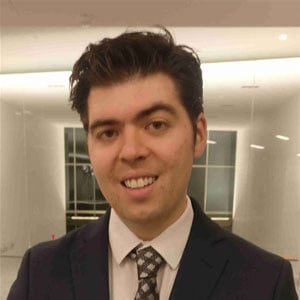
Alex Redei
Principal Software Engineer
Alex Redei is a Principal Software Engineer at Sierra Nevada Corporation. An educator, software engineer, and leader: he has over 20 years of experience in academia, industry, and government. His admiration of military and general aviation led him to research flight simulation and modeling. Alex has 16 publications - focusing on artificial intelligence (reinforcement learning), human factors, embedded systems, as well as flight simulation. Alex has a Doctor of Philosophy and Master of Science degrees in Computer Science & Engineering from the University of Nevada – Reno. His Bachelor of Science degree in Computer science is also from the University of Nevada – Reno. He also serves as vice-chair of the technical working group of the FACE consortium.
Tony Karam
Emerging Technology Director, Systems & Analysis Group, Synopsys
Tony Karam is the Emerging Technology Director within the Synopsys Systems & Analysis Group, where he leads strategic initiatives around next-generation technologies and solutions. He holds a Bachelor of Science in Electrical Engineering and a Master of Science in Computer and Systems Engineering. In his current role, Tony focuses on advancing the adoption of cutting-edge capabilities including Digital Transformation, Artificial Intelligence (AI), Model-Based Systems Engineering (MBSE), Autonomous Systems, and Digital Twin technologies. His work supports innovation across industries such as aerospace, defense, automotive, and industrial systems. Tony has played a pivotal role in promoting and deploying Synopsys’ Systems Solutions within the Future Airborne Capability Environment (FACE) and Modular Open Systems Approach (MOSA) frameworks since 2011. His efforts have helped drive open architecture adoption, enabling more agile, interoperable, and future-proof system development for both government and commercial customers. With a strong technical background and a passion for emerging technologies, Tony brings over a decade of leadership in bridging engineering innovation with practical application across complex, multidisciplinary domains.
Lynx on Daedalean's Panel
Certification of Machine Learning in Safety-Critical Systems
Moderator: Yemaya Bordain, President of the Americas and Chief Commercial Officer, Daedalean
Panelists:
- Peter Papadatos, Director of Software Product Development, Lynx,
- Matt Sipe, Vice President, Strategy, Open Systems, Parry Labs
- Marc Brittain, Senior Professional Staff, John Hopkins University
- Luis Alvarez, Technical Lead for Aviation Autonomy and AI Safety, MIT Lincoln Laboratory
- Amanda Bullock, Senior Strategy Advisor for Digital and AI, Air Force Research Laboratory (AFRL)